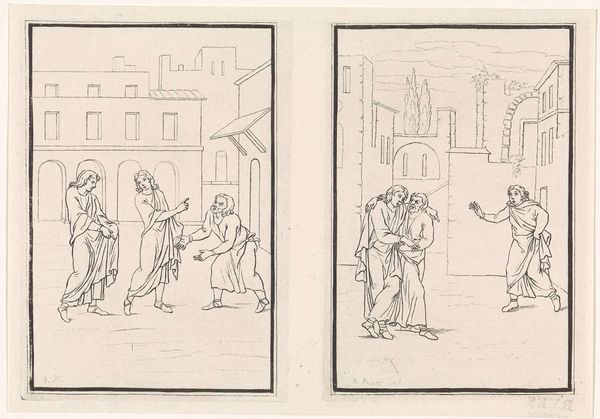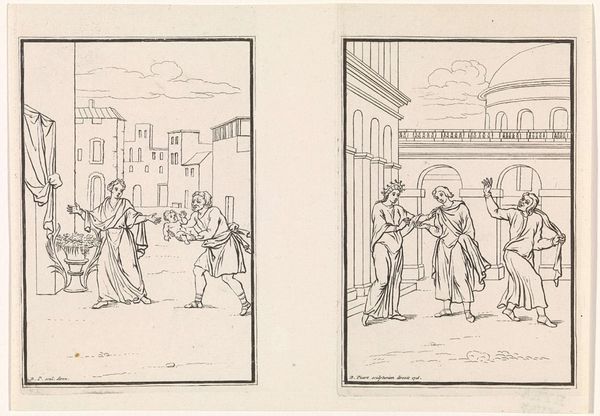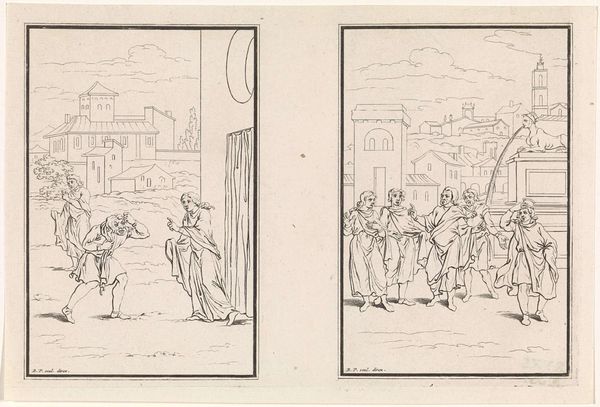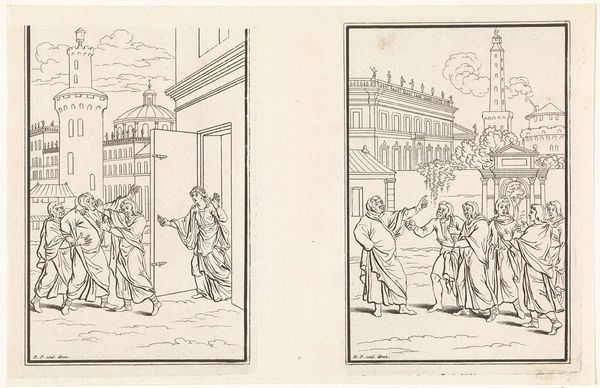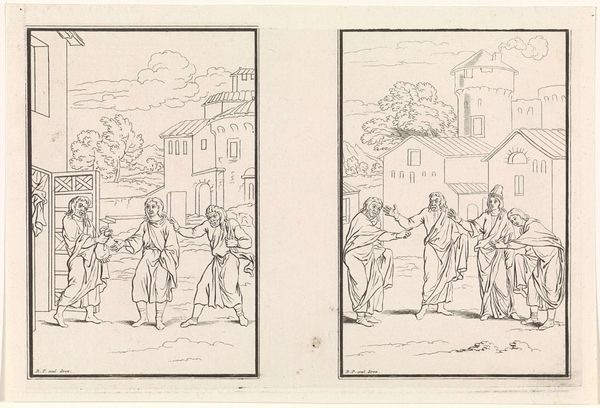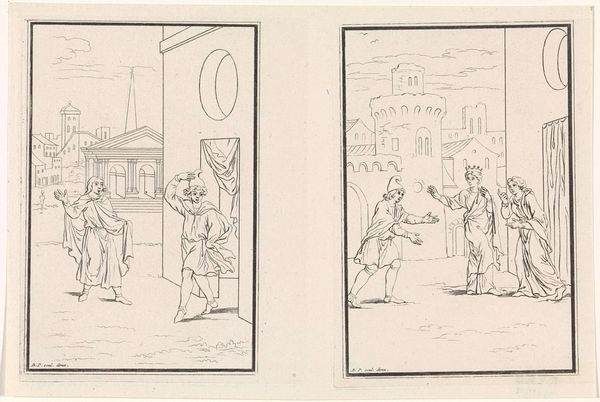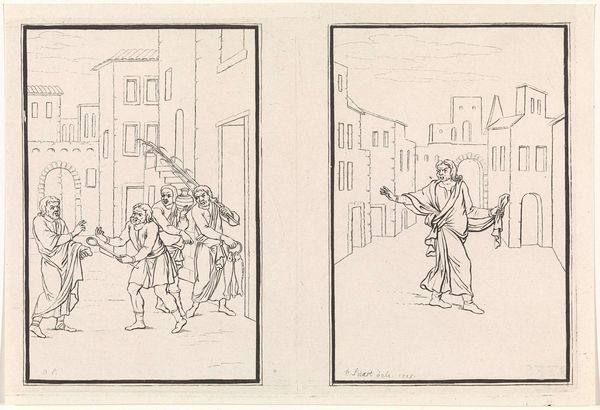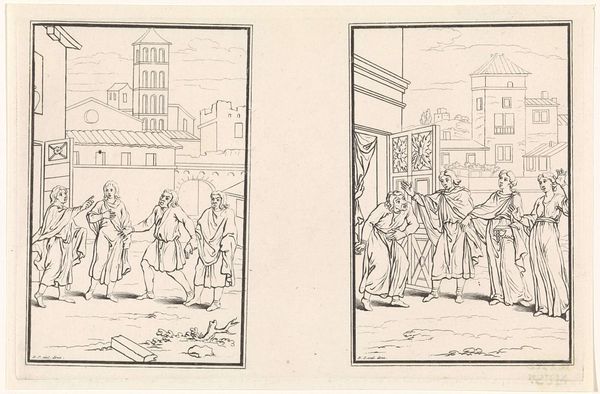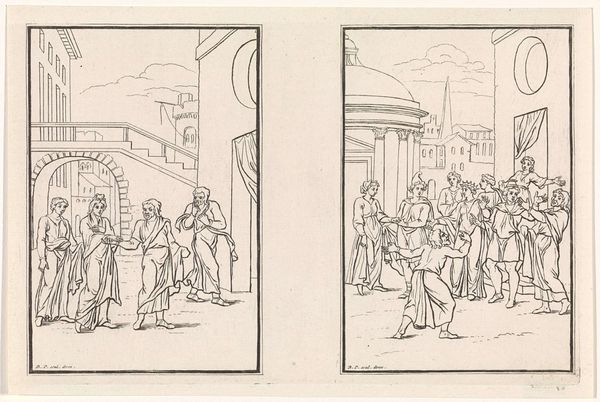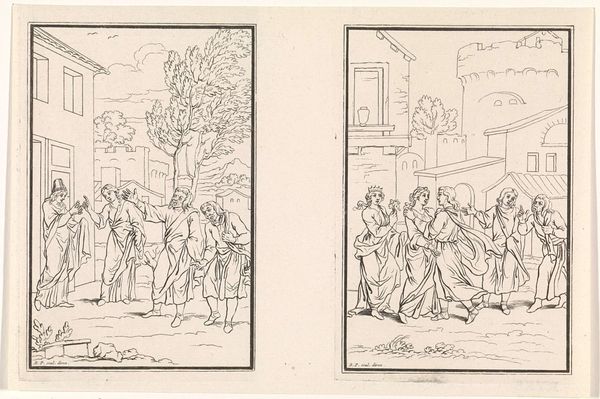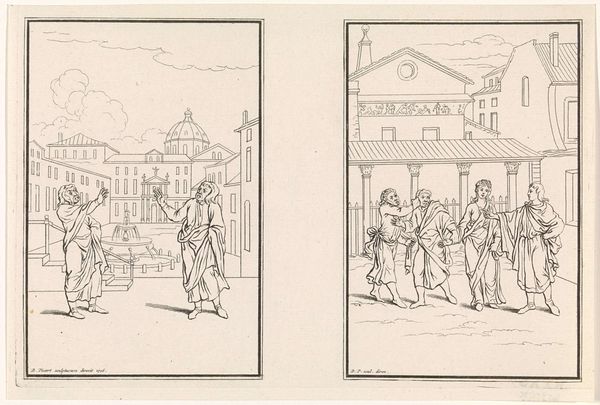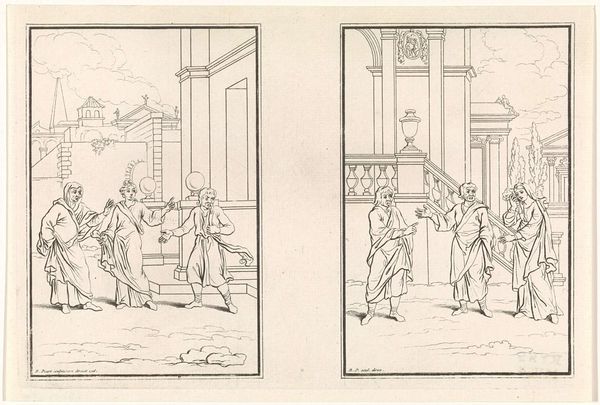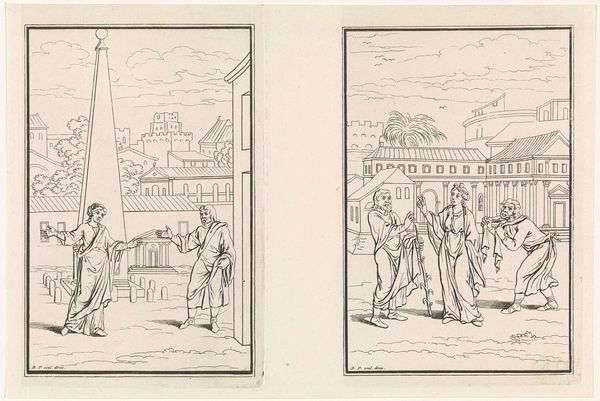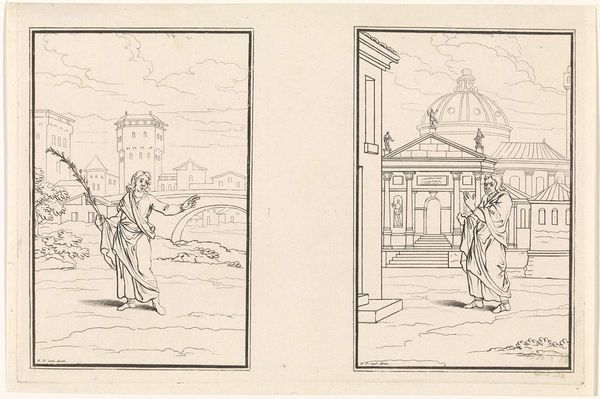
drawing, ink, pen, engraving
#
drawing
#
narrative-art
#
baroque
#
figuration
#
ink
#
pen
#
history-painting
#
engraving
Dimensions: height 131 mm, width 197 mm
Copyright: Rijks Museum: Open Domain
Bernard Picart created this print, "Two Scenes from the Comedy Andria by Terentius," using etching techniques sometime between 1693 and 1733. Etching is a printmaking process where an image is incised into a metal plate using acid. The plate is covered with a waxy, protective layer, then the artist scratches through this layer to expose the metal. Immersing the plate in acid etches the exposed lines, creating grooves. Ink is then applied to the plate, filling the etched lines. The surface is wiped clean, and the image is transferred to paper under high pressure. The precision of line suggests Picart was a master of his craft, meticulously controlling the acid's bite to achieve the desired depth and darkness of the lines. Consider the labor-intensive process of etching and printing at this time, far removed from our digital age. Looking closely at the materials, making, and historical context allows us to appreciate Picart's artistry and the social conditions of his time.
Comments
No comments
Be the first to comment and join the conversation on the ultimate creative platform.
